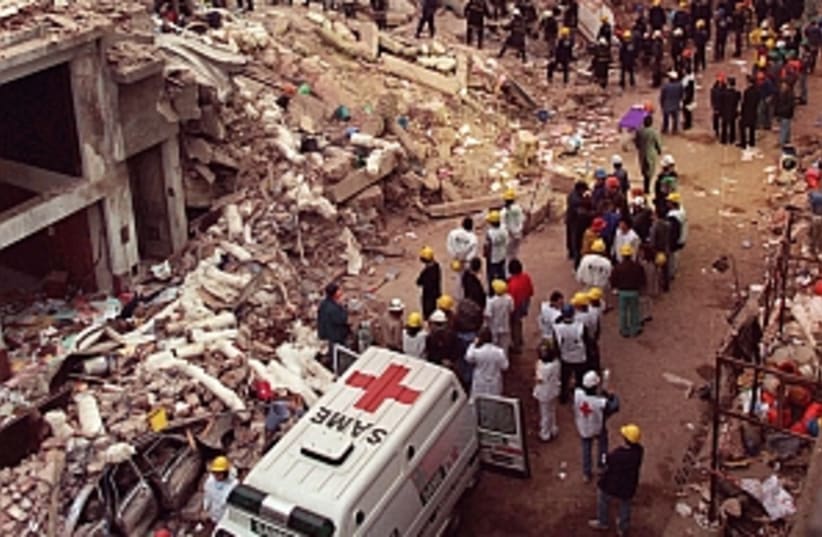| More about: | Hezbollah, Detroit, United States House of Representatives, Mossad |
Argentina: Hizbullah behind '94 bombing
Group's suicide bomber, who killed 85 people in Buenos Aires, identified.


| More about: | Hezbollah, Detroit, United States House of Representatives, Mossad |